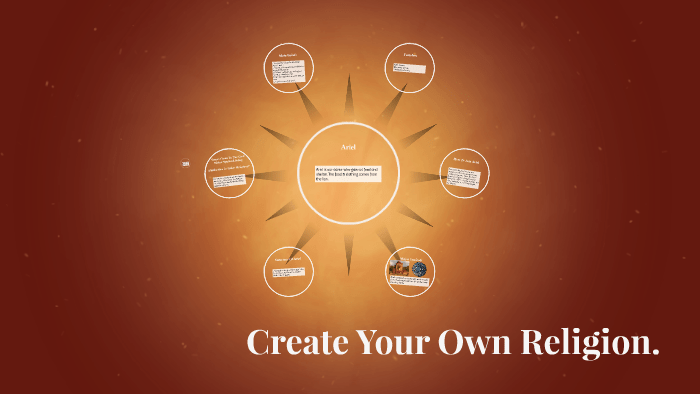In the realm of spirituality, the concept of “make your own religion” has emerged as a captivating phenomenon. Individuals and groups alike have embarked on the extraordinary journey of crafting their own religious beliefs and practices, shaping their spiritual experiences in a manner that resonates deeply with their personal values and aspirations.
This practice has given rise to a diverse tapestry of self-created religions, each reflecting the unique perspectives and experiences of their founders. From the enigmatic origins of ancient cults to the vibrant expressions of contemporary spiritual movements, the history of self-created religions is a testament to the enduring human quest for meaning and connection.
Religious Origins and Evolution
The concept of creating one’s own religion has existed throughout history, with individuals and groups establishing their own beliefs and practices based on their personal experiences and values. Motivations for founding a religion can vary widely, from a desire for spiritual fulfillment to a need for social change.
Notable examples include the Baha’i Faith, founded by Baha’u’llah in the 19th century, and the Church of Scientology, established by L. Ron Hubbard in the 20th century.
Beliefs and Practices

Self-created religions exhibit a diverse range of beliefs and practices. These often reflect the founder’s personal experiences and values, and may include unique rituals, doctrines, and ethical guidelines. Some self-created religions incorporate elements from established religions, while others reject traditional religious concepts altogether.
- The Baha’i Faith emphasizes the unity of humanity and the importance of interfaith dialogue.
- The Church of Scientology focuses on spiritual self-improvement through a process called auditing.
Legal and Social Implications

Creating one’s own religion can raise legal considerations, such as the establishment of a tax-exempt status and the protection of religious freedom. Social reactions to new religious movements can vary from acceptance to opposition, depending on the beliefs and practices of the group.
For example, the Church of Scientology has faced legal challenges and controversies related to its practices and tax status.
Community and Identity
Self-created religions often provide a sense of belonging and identity for their followers. They can foster community through shared beliefs, rituals, and social gatherings. However, challenges may arise in maintaining unity and cohesion within the group.
The Baha’i Faith emphasizes the importance of community building and interfaith cooperation.
Ethical Considerations

Creating one’s own religion involves ethical considerations, including the potential for abuse of power or manipulation. It is important for self-created religious groups to operate with transparency and accountability, ensuring the well-being of their followers.
The Unification Church, founded by Sun Myung Moon, has been criticized for its controversial practices and alleged financial improprieties.
Future of Self-Created Religions, Make your own religion

The future of self-created religions is uncertain. Factors such as social change, technological advancements, and the rise of interfaith dialogue may influence their growth or decline.
The increasing accessibility of information and the proliferation of online communities could potentially contribute to the emergence of new self-created religious movements.
FAQ Summary: Make Your Own Religion
What are the motivations behind creating one’s own religion?
Individuals may choose to establish their own religions for various reasons, including a desire for personal fulfillment, a search for deeper meaning, or a rejection of existing religious structures.
How do self-created religions differ from established religions?
Self-created religions often differ from established religions in their lack of a formal hierarchy, their emphasis on personal experience, and their greater flexibility in adapting to changing circumstances.
Are there any legal considerations when creating one’s own religion?
Yes, there may be legal considerations to keep in mind, such as the need to comply with zoning laws for religious gatherings or the potential for conflicts with existing religious organizations.
